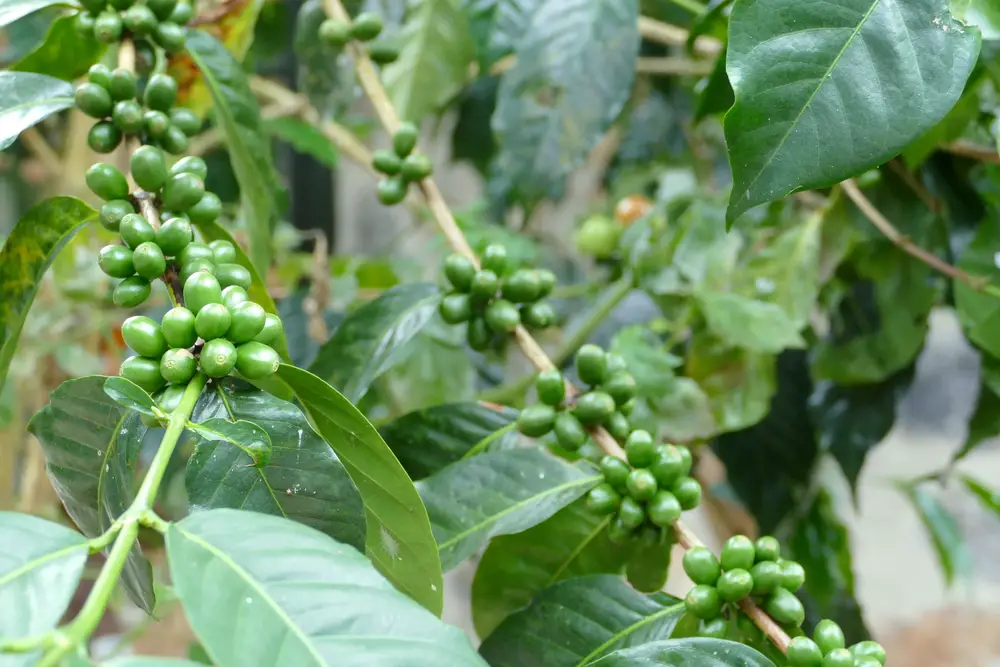The Arabica coffee was created from the combination of Eugenioid and Canephora coffee.
Table of Contents
Eugenioid coffee
Eugenioid coffee is one of the ancestors of Arabica coffee, along with Canephora (Robusta).
The two genomes are reported to have merged in the Great Rift Valley of southern Ethiopia around 10,000 and 20,000 years ago, giving rise to the Arabica coffee variety.
Interestingly, as a result of this hybridization, Arabica coffee has four sets of chromosomes, unlike many other plants and humans, who only have two.
Eugenioid coffee come from?
The coffee Eugenioid is native to East Africa in countries such as Uganda, Kenya, Rwanda, the Democratic Republic of the Congo and Tanzania.
Currently, Eugenioid coffee is mainly grown in the Holguín family’s Inmaculada Coffee Farms in western Colombia, at an altitude of 1900-2000 meters above sea level.
Inmaculada Coffee Farms has 50 hectares divided into 4 farms (Las Nubes, Monserrat, El Jardín, Inmaculada Concepción), specialized in the cultivation of rare coffee varieties, without regard to risk and cost. The farm also grows other types of coffee such as Sudan Rume, Gesha and Laurina.
Characteristics of coffee Eugenioid
Eugenioid coffee has the following characteristics:
- The caffeine content of Eugenioid is around 0.2%, which is lower than the caffeine content of Arabica species, which is between 0.8 and 1.4%.
- The Eugenioid coffee can be found in large and small forests between 1500 and 2200 meters above sea level.
- The coffee plant Eugenioid is a medium-sized tree with small leaves and cherries compared to the Arabica coffee plants.
- The Eugenioid coffee variety is more resistant to diseases, but its fruits can detach from the branches more easily, especially in very strong winds.
- Eugenioid has an aromatic profile with sweet notes. Notes of papaya, cereals, bubble gum, rice and sesame can be found in this coffee. There are also notes of guava, toasted marshmallow, strawberry yoghurt, lemon drops and powdered sugar.
- Eugenioid produces a maximum of 150 grams of coffee per tree. That’s less than half of what an Arabica coffee variety can produce.
- Eugenioid coffee is three times sweeter than any Arabica variety.
Is it difficult to grow Eugenioid coffee?
As you may know, growing coffee can be a difficult process for growers as conditions become more complex due to climate change and various diseases such as pests and coffee rust.
Growing Eugenioid coffee plants is not that difficult, but the yields are lower than the Arabica variety. In addition, the species is still considered experimental coffee, so only a few dare to grow it.
It should be noted that after growing the Eugenioid coffee variety, it can take up to 3 years to get the first harvest and up to 5 years to reach the higher yields.
Roasting of coffee Eugenioid
When roasting Eugenioid coffee, the master roasters try to bring out all of its characteristics so as not to waste the great potential of this variety.
Therefore, attempts are made to choose roast profiles that emphasize the natural taste of the coffee.
How difficult is it to obtain Eugenioid coffee?
Eugenioid is not widely grown, so supply is limited.
Eugenioid coffee prizes in international competitions
- In 2015, Sarah Anderson (USA) used Eugenioid coffee at the Brewer Cup in Gothenburg, where she placed second in the competition.
- In 2015, Diego Campos (Colombia) won first place at the World Barista Cup in Milan. In the same edition, Andrea Allen (USA) placed second and Hugh Kelly (Australia) placed third, both also with Eugenioid coffee.
- In 2021, Matt Winton (Switzerland) won the Brewers World Cup with Eugenioid coffee.
What does the future of Eugenioid coffee look like?
Some people refer to Eugenioid coffee as a neglected species as it has gone unnoticed in the coffee industry most of the time.
Nonetheless, Eugenioid is cited as one of the coffee varieties that will gain the upper hand in the coffee industry in the coming years as more resilient coffee varieties that can withstand severe climatic changes are in demand.
It is therefore very likely that Eugenioid coffee could be in greater demand in the future. However, this requires the growers to have the desire and conviction to experiment and start growing this type of coffee.
It is important to remember that it is all about profitability, as growers need to be sure that their efforts will be well rewarded.
Most coffee producers do not feel ready to start growing Eugenioid coffee as it is an experimental coffee. So, for the time being, the coffee will be difficult to find because it is exclusive and therefore has a high economic value.



